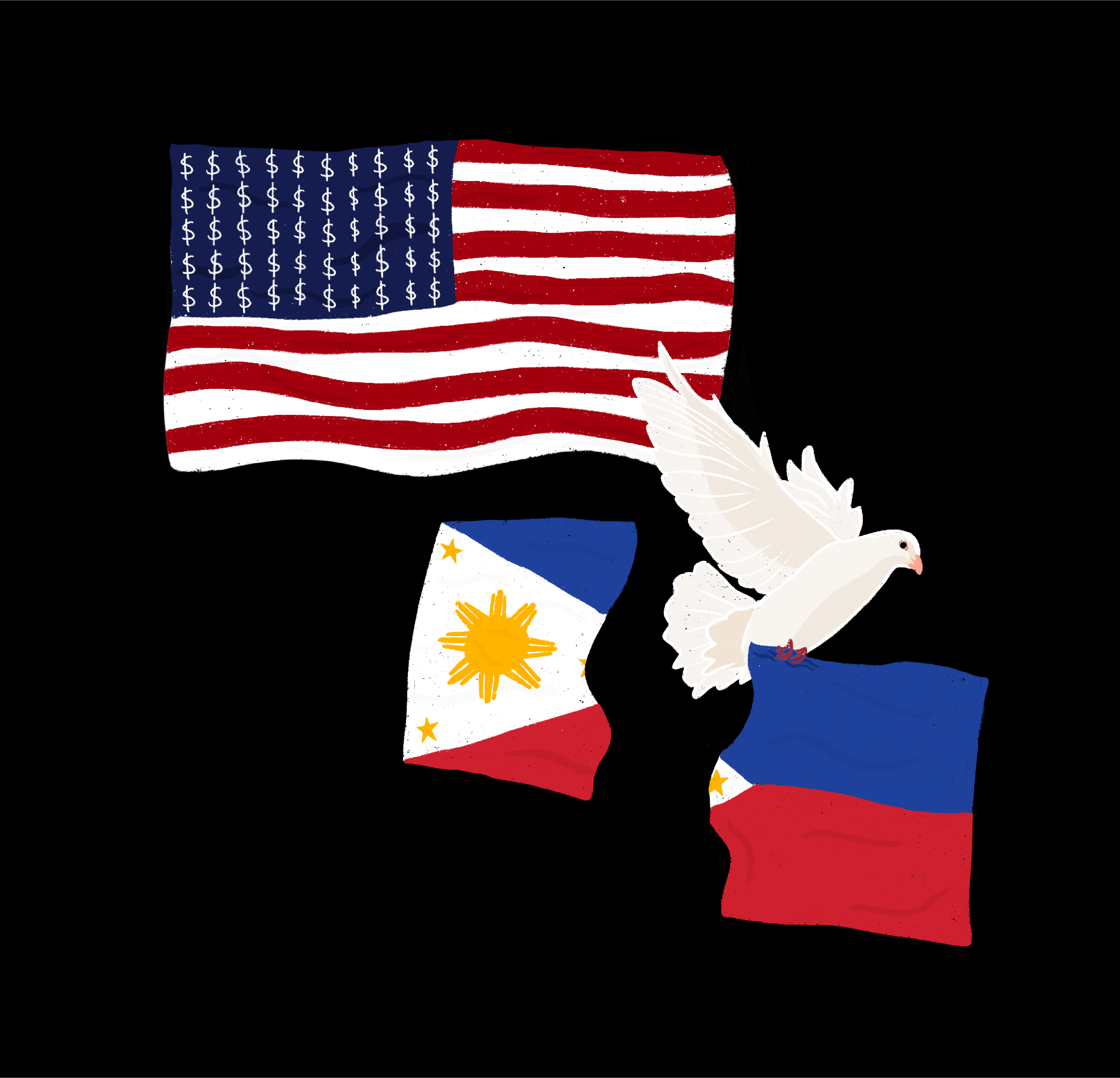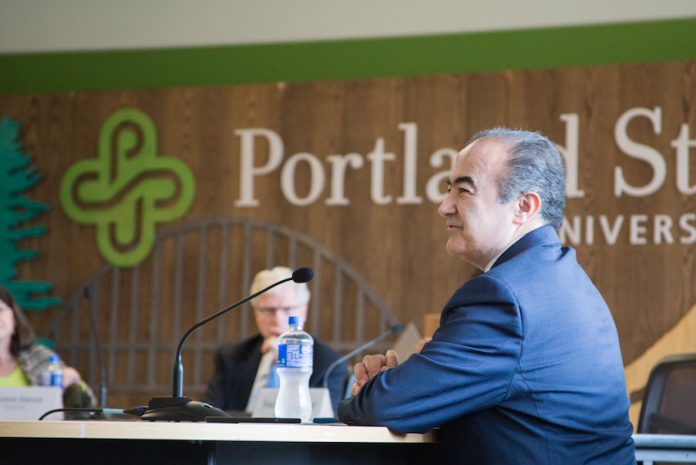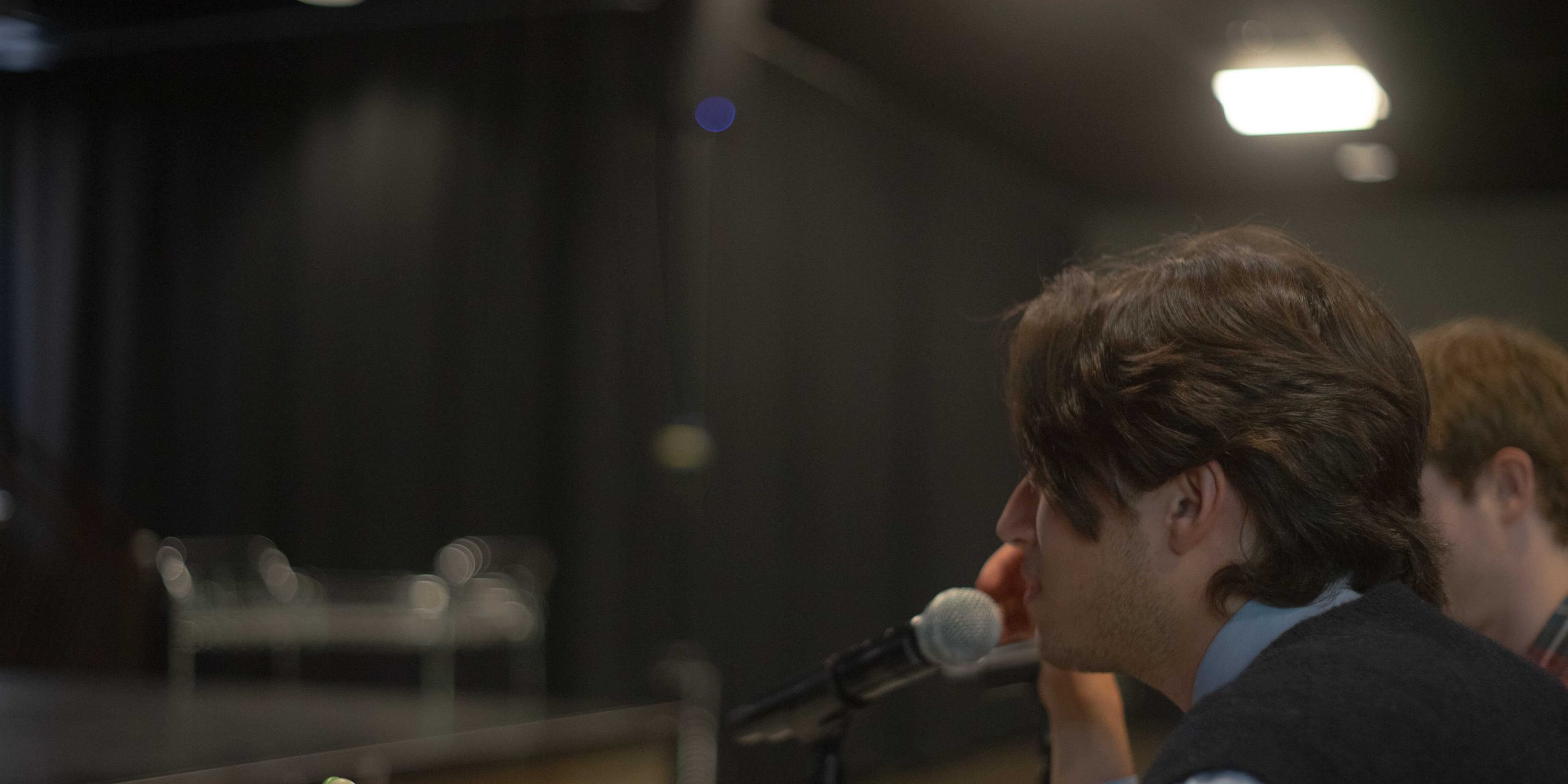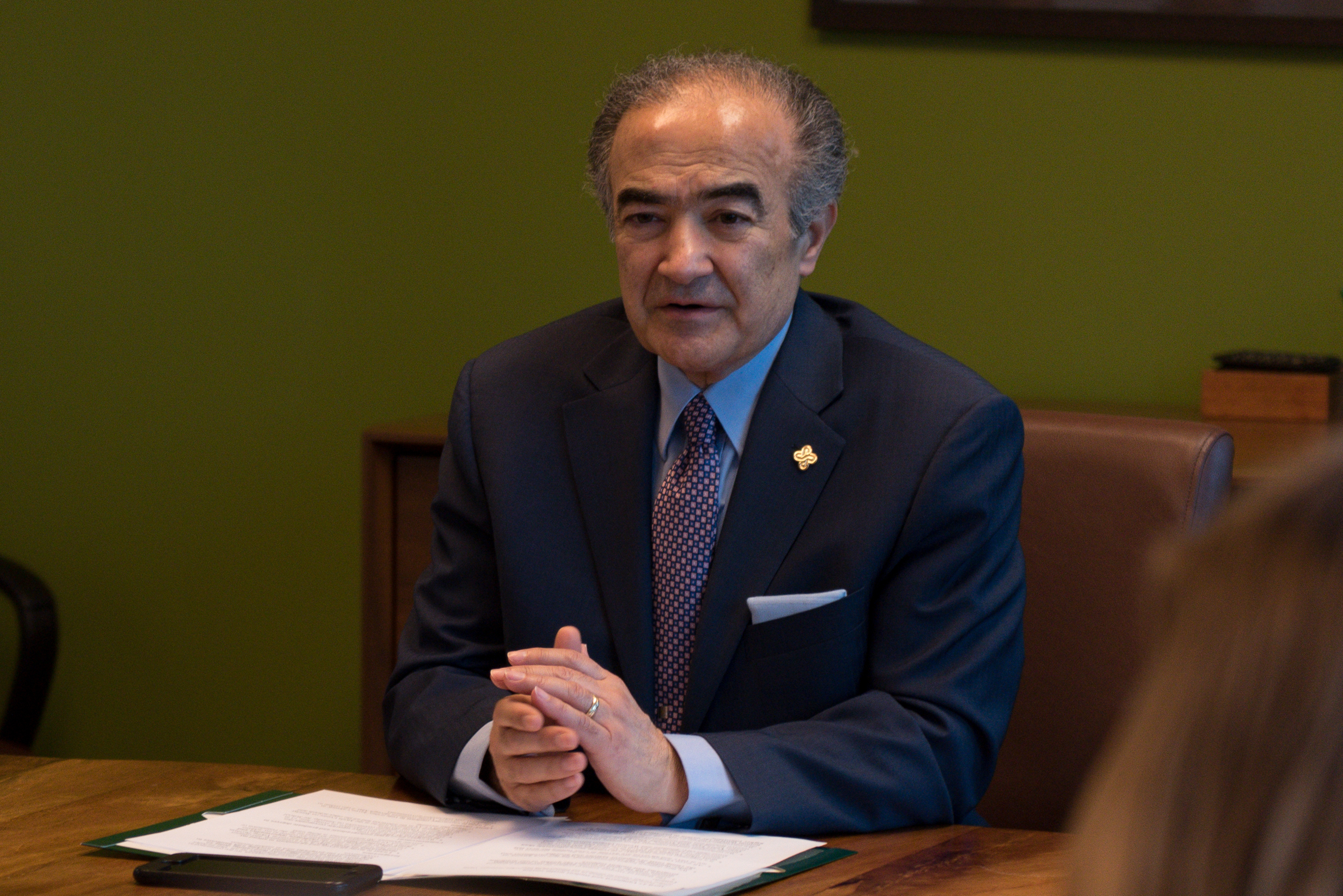American cultural and political hegemony is part and parcel of a nation founded on imperial colonization, a foundation upon which it has never stopped expanding. From Operation Condor to the nuclear testing on the Marshallese people, the displacement of millions during the war on terror and the ongoing colonialism waged on United States territories—like Puerto Rico and Guam—the U.S. empire ceaselessly prioritizes territorial and capital expansion over humanity.
Today, U.S. imperialism and concerns about human rights violations once again intersect with the growing alliance between U.S. and Filipino governments and corporations.
Pervasive political corruption in the Philippines persists as remnants of Ferdinand Marcos’ two decades of violent military dictatorship—including extrajudicial killings, exploitative labor laws maintaining systemic poverty and the detainment of human rights advocates, journalists and protestors. Current President Ferdinand Romualdez Marcos Jr. is the son of Marcos Sr.
“Peasant farmers that work from dawn to dusk often have to rent tools with typical interest rates of 150%; up to two-thirds of the farmer’s crop is taken from them by greedy landlords,” stated Izzy Fawson—an organizer with People Organizing for Philippine Solidarity (POPS)—about working conditions in the Philippines.
“These conditions force people into poverty, into deeper debt, and ultimately, to their demise,” Fawson stated. “This is due to U.S.-backed Filipino politicians making policies that allow, and even enforce, these conditions. After all, U.S. corporations need labor to be as cheap as possible.”
Nike, Coca-Cola and Comcast are a few U.S. conglomerates profiting from cheap labor in the Philippines, exploiting the country’s unjust minimum wage of about $10 per day.
In May of this year, another U.S. foreign investment project caused concerns regarding further exploitation of the Filipino people. The Oregon corporation Nuscale Power plans to build small modular reactors (SMRs) in the Philippines, which is a $7.5 billion investment.
While SMRs act as a greener alternative to fossil fuels, many proponents cite the cost of long-term maintenance and the risks of nuclear energy for the local population and environment.
SMRs technology “is more wasteful than traditional nuclear power technology, more than twice as expensive as solar and wind (which the Philippines has in abundance), and can be used for nuclear arms proliferation or for depleted uranium to coat bullets,” stated Sam Miller, a member of POPS and the U.S. coordinator for Friends of the Filipino People in Struggle (Friends-FFPS).
Miller expressed another concern that “the placement of the SMRs, along the coast facing China, implies to us that it will actually be used to further inflame inter-imperialist tensions between the U.S. and China, putting the Filipino people in the crosshairs of any conflict there.”
The authorities have also sanctioned military operations. In February, the Philippines agreed to the U.S. construction of four new military bases on the islands in addition to the five preexisting bases.
Filipinos and their allies have formed organized resistance groups in response to the sale of Filipino land and sovereignty to U.S. military expansionism and corporate interests.
“The oppression, exploitation, human rights violations, and environmental degradation in The Philippines were shocking to me, but what is more important to me is the ongoing resistance,” Miller stated.
POPS, FFPS, the Portland Committee for Human Rights in the Philippines, the Kalikasan Solidarity Organization and Anakbayan Portland represent local organizations which stand in solidarity with the Filipino resistance for freedom and equity.
“It’s this struggle for national and social liberation that shows what is possible when people come together against oppression and exploitation and for a world where the majority of people are no longer exploited by the top 1% of billionaires,” Miller said.
In this way, the Filipino struggle is not unrelated to the fight against capitalistic exploitation everywhere. “The workers of the U.S. are not the enemy of the Filipino people; our interests are intimately interwoven,” Fawson stated.
Parallels between economic and social inequity systems in the Philippines and the U.S. are interrelated and abundant.
Tiffany Ganir, PSU alumna and academic and career advisor, identified a “heightening of neoliberalism in public services from our healthcare to educational institutions, like PSU. The essence of neoliberalism is the prioritization of PROFIT over PEOPLE, and in this case running our educational institution as a business.”
Ganir cited PSU’s budgetary failures—such as the merger of the daycare centers, nonrenewal of adjunct contracts and the hiring freeze which understaffed student services—as indicators of the institution’s backward moral compass.
Additionally, Ganir recognized the school of business’s partnership with Boeing as representative of a harmful profit-over-people mentality, considering how Boeing is a weapons manufacturing company responsible for perpetuating war crimes against civilians in the Middle East and as producers of surveillance technology to increase deportations along the U.S.-Mexico border.
Even within higher education—with our ideals of tolerance, peace and equity—U.S. military interests and corporate greed dictate the curriculum and resources which serve—or fail to serve—our university community.
“The issues that are facing the Philippines are caused by the same forces that create issues for Americans. Big businesses and the U.S. government want more profit,” Fawson stated.
The U.S. has always entrenched itself in conflicts and capitalistic ventures all over the world. Behind the scenes, U.S. political and economic elite propagate the cultural ideology necessary for this expansionism.
“The ruling class perpetuates a culture of chauvinism, individualism, and exceptionalism,” Fawson stated. “This culture continues the racist, misogynist, and paternalistic attitudes that ultimately serve to enrich the ultra-wealthy and to divide the struggle of the working class in the U.S. from the struggle of the people in the Philippines.”
“This culture serves the ruling class by justifying the hyper-exploitation of Filipino workers and migrants, military and economic occupation of the Philippines, and the sex trade that preys on Filipino women,” Fawson stated.
The systemic injustices manifested in the Philippines are rooted in U.S. hegemony and a dominant culture of exploitation.
“Marcos Jr. is leading, just like his father Marcos Sr., with the corruption of pocketing money and neoliberal policies,” Ganir stated. “So until we get rid of the hold of U.S. imperialism and bureaucrat capitalists, we won’t get to see the Filipino people truly be free.”
“We should see that the Filipino people’s interests are intimately bound to ours,” stated Miller, “That a solid blow against U.S. imperialism and for liberation in the Philippines is a net positive for the majority of the world’s people.”






